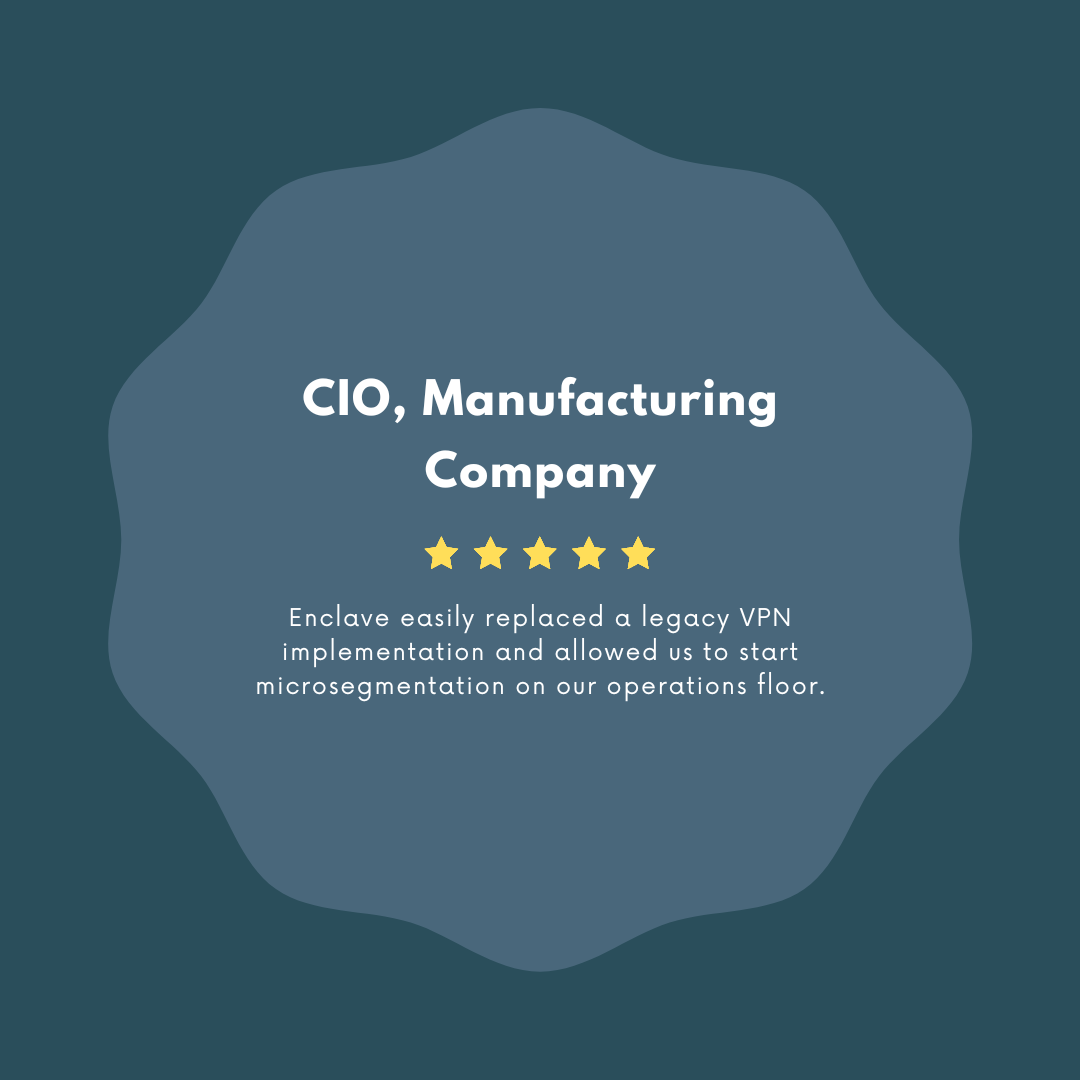As cyber threats become more sophisticated, the traditional tools and methods for securing networks must adapt. One such advancement is the consideration of Enclave as a viable replacement for traditional VPN solutions, such as those offered by Cloudflare. This article delves into the intricacies of Enclave, comparing its features and capabilities with conventional VPN services, and highlighting how it stands as a modern solution for today’s cybersecurity challenges.
The Need for Advanced Cybersecurity Solutions
The digital age has ushered in an era where cybersecurity threats are not only more frequent but also significantly more complex. Traditional VPNs have been the cornerstone of network security, providing a secure tunnel for data transmission across the internet. However, as cyber attackers become more adept, the limitations of VPNs are becoming increasingly apparent. This section explores the evolving cybersecurity landscape and the pressing need for advanced solutions like Enclave.
Limitations of Traditional VPNs
Traditional VPNs, while effective in creating secure connections, often fall short in today’s dynamic cyber environment. They typically operate on a perimeter-based security model, which assumes that everything inside the network is safe. This approach is increasingly inadequate as threats often originate from within the network itself. Additionally, VPNs can introduce latency, complicate access controls, and struggle to scale with the growing needs of modern businesses.
Moreover, VPNs require users to route their internet traffic through a central point, which can become a bottleneck and a single point of failure. This centralized model does not align well with the decentralized nature of cloud computing and remote work, making it less effective in protecting distributed IT environments.
The Rise of Sophisticated Cyber Threats
The cyber threat landscape is constantly evolving, with attackers employing more sophisticated techniques to breach networks. Ransomware, phishing attacks, and insider threats are just a few examples of the myriad ways cybercriminals can infiltrate an organization’s defenses. These modern threats require a more nuanced approach to cybersecurity, one that goes beyond the capabilities of traditional VPNs.
As businesses increasingly adopt cloud services and encourage remote work, the attack surface expands, making it more challenging to secure. This shift necessitates a solution that can adapt to the changing environment, protect against a wide range of threats, and provide secure access to resources regardless of location.
Introducing Enclave: A Modern Solution
Enclave represents a paradigm shift in network security, offering a comprehensive platform that addresses the limitations of traditional VPNs while providing enhanced protection against modern cyber threats. This section outlines the key features of Enclave and how it serves as a superior alternative for organizations looking to bolster their cybersecurity posture.
Microsegmentation and Zero Trust
At the heart of Enclave’s approach to security is microsegmentation, coupled with a Zero Trust model. Unlike traditional VPNs that rely on a perimeter-based security model, Enclave segments the network into smaller, manageable units. This granular control allows for precise access management, ensuring that users and devices only have access to the resources necessary for their roles. The Zero Trust model takes this a step further by not assuming trust based solely on network location, thereby significantly reducing the attack surface.
This combination of microsegmentation and Zero Trust principles ensures that even if an attacker gains access to the network, their movement is severely restricted, limiting the potential damage they can inflict. This is a stark contrast to traditional VPNs, where once the perimeter is breached, attackers often have free rein over the network.
Enhanced Performance and Scalability
Enclave is designed with performance and scalability in mind, addressing the common pitfalls of traditional VPNs. By leveraging a decentralized architecture, Enclave eliminates the bottlenecks associated with central routing, ensuring efficient data transmission and reducing latency. This architecture also allows Enclave to scale seamlessly with the organization, accommodating the growing number of users and devices without compromising on performance or security.
Furthermore, Enclave’s lightweight design minimizes the impact on system resources, ensuring that security measures do not hinder productivity. This is particularly beneficial for organizations with a large remote workforce, as it provides secure access to resources without the performance issues often associated with VPNs.
Comparative Analysis: Enclave vs. Cloudflare VPN
When considering Enclave as a replacement for Cloudflare’s VPN solutions, it is essential to conduct a comparative analysis of their features, benefits, and suitability for modern cybersecurity needs. This section compares the two solutions across various dimensions, highlighting the advantages of Enclave in the context of contemporary cybersecurity challenges.
Security Features
While Cloudflare offers robust VPN services with strong encryption and traffic routing capabilities, Enclave’s security features, such as microsegmentation and the Zero Trust model, provide a more comprehensive approach to network security. Enclave’s ability to limit lateral movement within the network and enforce strict access controls based on user and device identity offers a level of security granularity that traditional VPNs struggle to match.
Performance and User Experience
Performance is another critical factor in the comparison between Enclave and Cloudflare’s VPN solutions. Enclave’s decentralized architecture not only enhances security but also improves data transmission efficiency, reducing latency and ensuring a smoother user experience. This is particularly advantageous for organizations with geographically dispersed teams, as it ensures consistent access speeds regardless of location.
Scalability and Management
Scalability is a vital consideration for growing organizations. Enclave’s scalable architecture and intuitive management console make it easy to add new users and devices, adjust policies, and monitor network activity. In contrast, scaling traditional VPN solutions can be more complex and resource-intensive, often requiring significant administrative effort to maintain security as the network expands.
Enclave Deployment Strategies
Organizations considering the adoption of Enclave must also evaluate the various deployment strategies available to them. Enclave offers flexibility in deployment, allowing organizations to choose between on-premises, cloud-based, or hybrid models. Each deployment strategy comes with its own set of considerations, such as data sovereignty, compliance requirements, and network architecture.
On-premises deployment of Enclave provides organizations with full control over their infrastructure and data, ensuring compliance with regulatory standards and data protection laws. Cloud-based deployment, on the other hand, offers scalability and accessibility benefits, allowing organizations to leverage Enclave’s security features without the need for extensive hardware investments.
Hybrid deployment models combine the advantages of both on-premises and cloud-based solutions, offering organizations the flexibility to tailor their security infrastructure to meet specific business needs. By understanding the nuances of each deployment strategy, organizations can make informed decisions that align with their security objectives and operational requirements.
Integration with Security Orchestration Platforms
Another critical aspect of deploying Enclave is its integration with security orchestration platforms. By integrating Enclave with existing security tools and platforms, organizations can enhance their threat detection and response capabilities, streamline security operations, and ensure a cohesive security posture across the network. Security orchestration platforms enable automated incident response, threat intelligence sharing, and centralized management of security policies.
Integrating Enclave with these platforms allows organizations to leverage its microsegmentation and Zero Trust capabilities within a broader security ecosystem, enhancing visibility and control over network traffic, user activities, and potential security incidents. This integration strengthens the overall security posture of the organization and enables proactive threat mitigation in real-time.
Conclusion: The Future of Network Security
The transition from traditional VPN solutions to more advanced platforms like Enclave represents the future of network security. In an era where cyber threats are increasingly sophisticated and the perimeter-based security model is no longer sufficient, Enclave offers a compelling alternative. Its focus on microsegmentation, Zero Trust, and a decentralized architecture provides the enhanced security, performance, and scalability that modern organizations require.
As businesses continue to navigate the complexities of cybersecurity, adopting solutions like Enclave that are designed to address the challenges of today’s digital landscape will be crucial. By embracing these advanced technologies, organizations can ensure the secure, reliable, and efficient operation of their IT environments, from procurement to retirement.
Discover the Enclave Advantage
Ready to redefine your organization’s network security with Enclave? Experience firsthand how our cutting-edge micro-segmentation tool can transform your cybersecurity posture. From real-time vulnerability scanning to seamless policy adjustments and comprehensive compliance reporting, Enclave is your all-in-one solution for creating secure, efficient, and manageable IT environments. Don’t wait to fortify your network against the threats of tomorrow.
Book a demo today and step into the future of cybersecurity with Enclave.




